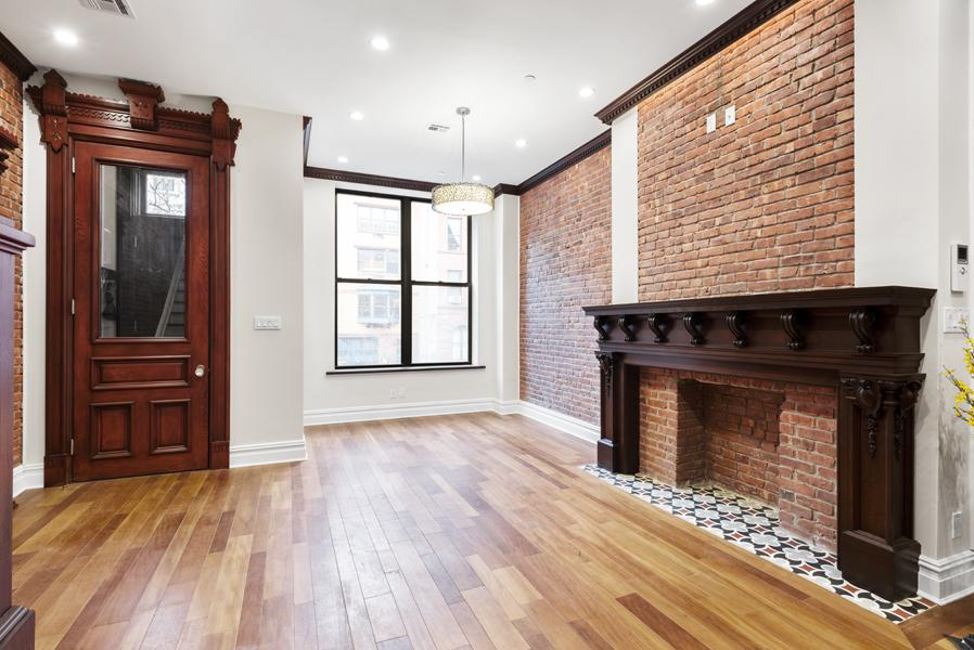For a lot of residents of New York, owning a brownstone is a dream come true. Brownstones have a lot of space, a rarity in NYC. Not to mention the fact that most brownstones have extra rooms available for your friends and in-laws when they come to visit the Big Apple. For the most part, owning a brownstone is amazing; until you commit to a mortgage and later find out that your dream brownstone comes with more responsibility than what you expected. Overall owning a brownstone in New York City is a privilege; however, it’s a major commitment and long-term investment that requires a lot of patience.
If you believe that purchasing a brownstone in New York City is for you, read below for all the details about what you should expect when you purchase and own a brownstone in New York City.
Brownstones are Long-Term Commitments
Purchasing any type of property in NYC is a huge accomplishment. Especially a brownstone. This is especially true as a first-time homebuyer. In general, purchasing a brownstone is more than a temporary short-term financial investment; it is a long-term investment that requires careful budgeting and lifetime changes to reap the benefits of your purchase.
A brownstone is not really considered a starter home as they usually have generous space and require specialized maintenance. Also, brownstones are commonly located in pricier neighborhoods such as Upper Westside and Brooklyn Heights. Overall, most single family brownstones in Manhattan typically go for over $2 million. As such, if you are not planning to stay in your brownstone for more than 10 years, it may be better financially to purchase a condo or a co-op apartment instead, unless you’re purchasing a 3-4 unit brownstone.
Repairs
One of the primary benefits of being the owner of a brownstone in New York City is that you enjoy a lot of autonomy and privacy. In other words, you don’t have to answer anyone. However, on the downside, when things break down, you can’t call a Super. In other words, you are responsible for every little issue that may arise within your brownstone. For example, when your roof leaks, you lock yourself out of your brownstone, or your cable suddenly stops working, there is no lovely superintendent to call to fix these issues. You have to be prepared to handle these issues on your own. This also means that you should have a vetted team of contractors and handymen on speed dial that you can call when issues arise.
Taxes
One of the major benefits of owning a brownstone in New York City is that they are typically taxed less than apartments in the city. Specifically, single-family homes, which include townhouses and brownstones or an apartment in a building with less than three-unit, are only a stay at a 6% tax rate. Compare that with units and apartment buildings with more than three units, they are assessed at 45%. Additionally, with a brownstone, you do not have to pay monthly maintenance fees, association fees, and common charges.
Roof Repairs
As the owner of your own brownstone, you are responsible for maintaining the roof over your head, literally. As such, before you purchase a brownstone, you should have an idea of the roof repairs history and past maintenance schedule. When you order your home inspection, the inspector should be able to advise you if there are any potential issues looming on your roof.
Two issues that brownstone owners commonly deal with are the separation of the roof and water getting into the installation of the roof. To prevent these types of issues, you must set up a maintenance schedule on a semiannual basis. Also, you should consider having your roof checked by a professional roofer after hard winters or whenever the city sees a large amount of snow, as both of these can wreak havoc on your roof.
Facade
Brownstone is a fairly soft material that can easily erode and decay. As such, brownstone homeowners must undertake extensive renovations to their facade to maintain both the appearance and structural integrity of their brownstone. The price for this work varies. However, keep in mind that a full façade repair may cost up to $100,000 for larger projects. Additionally, the landmarks preservation commission provides stringent guidelines for how brownstone owners must repair therefore size to preserve the historical and structural integrity of their brownstone. When hiring a contractor to repair or renovate your façade, it is extremely important that you hire one that is familiar with the LPC’s regulations to ensure that you are following the applicable NYC laws.
Windows
Windows located in historic brownstones are different from windows in other houses and apartments. While these types of windows features are nice, they require meticulous care to maintain their historical appearance. Similar to the brownstone’s façade, to avoid issues, you must hire a contractor who specializes in 19th-century windows and historic brownstones.
Fireplaces
Fireplaces, particularly with wooden mantels, are a quintessential feature of brownstones in New York City. If you own an entire brownstone building, chances are that the property will have multiple fireplaces. However, the mantles on these fireplaces can be very delicate and are susceptible to damage. This means that an owner must be prepared to take particularly good care of their fireplace, which includes frequent dusting and polishing to maintain the appearance. In New York City, fireplaces tend not to be functional instead they are for decorative purposes. However, some owners still have the luxury functioning fireplaces. If you are purchasing a brownstone and you want to do a fireplace renovation, you should start planning that immediately. It’s a waste of time to plan an entire renovation without including the fireplace replacement in your plans, as this may cost you more money in the long run.
Air Conditioning
Most brownstones do not have air conditioning. Unless you are purchasing a brownstone that has been recently renovated. Your main options for cooling your brownstone in the summer are to install central air conditioning, install window units, or a split AC unit. Given that most brownstone owners are meticulous about their home’s appearance, most opt for an HVAC system in a full renovation. However, the second option for owners is installing split AC systems that are less invasive to your ceiling heights. In general, these units are easier to install and less expensive than central air. These units cool your home through mounted wall units. That you placed in individual rooms throughout your brownstones. While it is true that these are not the most discrete systems. They do allow owners to control each room’s temperature throughout the brownstone.
Stairs
One of the cool features about purchasing a brownstone is that it comes with multiple floors. This also means that you have multiple flights of stairs. The downside to this is that your movers will have to go up and downstairs to bring in your belongings. Overall, stairs are fine when you are younger. However, multiple flights of stairs may become an issue if you are nearing older age or retirement. In that case you might consider a brownstone with an elevator.
Backyard space
One of the major parts of having a brownstone is that you get to enjoy backyard gardens and patios in the middle of New York City. However, keep in mind that plants can be awfully expensive to help maintain your outdoor space. This is especially true when you add together the cost of a grill and outdoor furniture, and other accessories.
Another thing to consider is that you are responsible for the trees located within your backyard. That means that you will have to trim them in regularly to attend to the branches to ensure that they are not posing a threat to you or anyone nearby. This includes ensuring that your trees are not a nuisance to your neighbor’s property.
Overall, living in a brownstone is a unique experience and there are great services for anything above that might have given you anxiety.
Schedule a call with me here if you have any interest in obtaining a complimentary valuation for your home or buyer consultation.
Connect with me on Linkedin or Instagram for more information on the townhouse and multifamily market.
Authored by: Stanley Montfort
To see townhouse inventory, click here.




